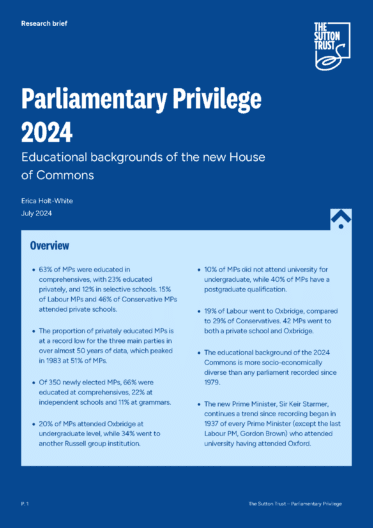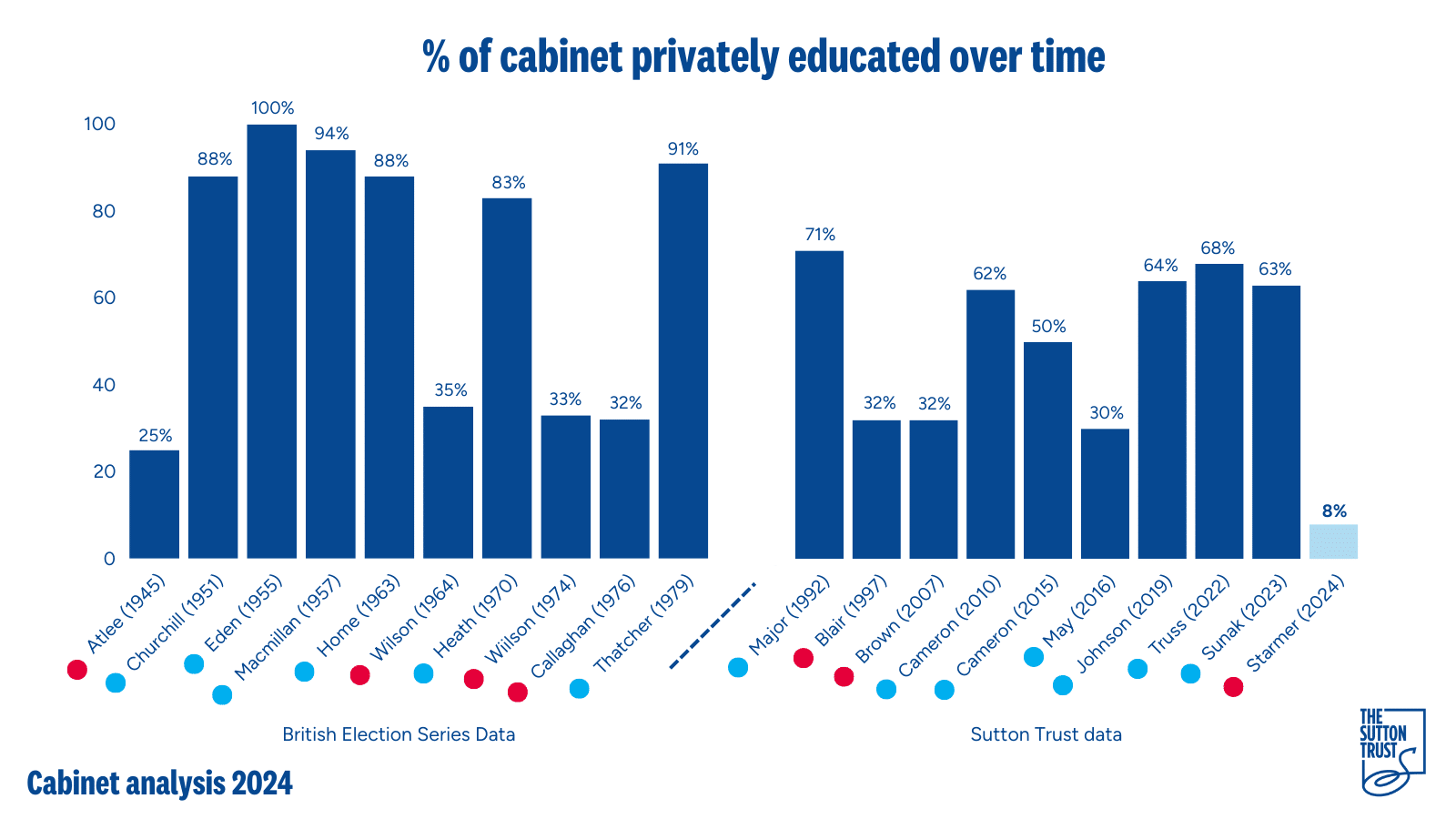Since 2010, we have been looking at the educational backgrounds of the 650 Members of Parliament elected to the House of Commons.
Following the UK General Election on July 4th, our detailed analysis of the new crop of MPs finds a significant change in their school and university backgrounds compared to those who were elected in 2019.
It shows that a record proportion of MPs attended state comprehensive schools, with the proportions of those who were privately educated and attended university now being more representative of the UK population, when compared to the Commons in 2019. However, the educational backgrounds of MPs still remain considerably different to those of the population at large.
The new Prime Minister, Sir Keir Starmer, continues a trend since 1937 of every Prime Minister (except the last Labour PM, Gordon Brown) with a degree attending the University of Oxford, where he completed a postgraduate qualification.
Read our previous analysis from 2015, 2017 and 2019, and read our analysis of the educational backgrounds of the new Cabinet.

